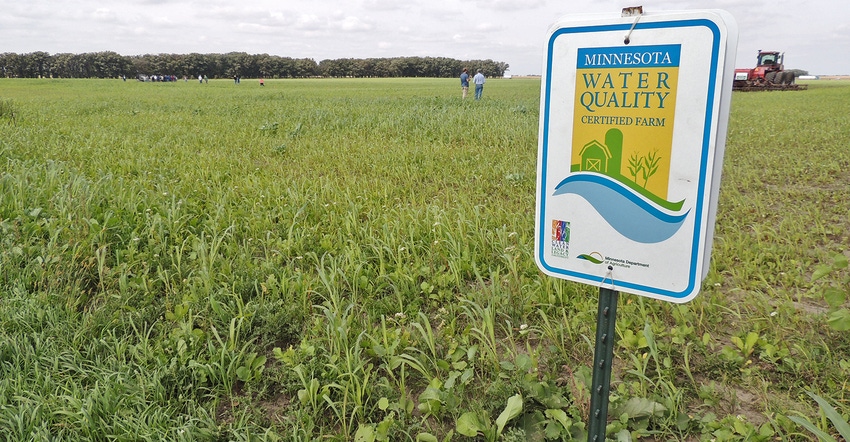December 27, 2018

The Minnesota Department of Natural Resources has committed to pursuing certification of 15,000 acres of croplands it owns and manages as part of a statewide effort to protect water quality.
The effort falls under the state Department of Agriculture’s Minnesota Agricultural Water Quality Certification Program. Farmers and agricultural producers are certified for voluntarily managing their land in a way that conserves the state’s water.
To date, the program has evaluated and certified more than 450,000 acres of Minnesota farmland. With the DNR’s commitment, 465,000 acres will be enrolled in the certification program.
Tom Landwehr, DNR commissioner, said the agency needs to be a leader in ensuring that the croplands it manages contribute to water quality goals.
“The certification program demonstrates to us, and to the people of Minnesota, that we are using best practices in our land management activities,” he said in a news release.
The DNR’s small farm fields, mainly scattered across western and southern Minnesota, are managed to provide a supplemental food source for wildlife — particularly in winter months — to increase wildlife viewing or hunting opportunities, or to provide alternate food sources for wildlife to prevent crop damage on private lands.
Agreements with local farmers
In most cases, the DNR uses agreements with local farmers to plant and manage the fields. In return for planting and managing the crop, the cooperating farmer harvests a portion of the field for him- or herself and leaves the remaining crop to stand through the winter.
Improving cropping practices on DNR lands can provide a number of desired benefits, including enhancing feeding opportunities for wildlife, protecting plants and animals on surrounding habitats, conserving and protecting water quality and protecting air quality, as well as sequestering carbon and conserving energy.
Dave Frederickson, Minnesota Department of ag commissioner, noted that the MAWQC program originated as a collaborative effort among federal, state and local partners.
“We are pleased to enroll these DNR-owned lands into the program,” he said. “This demonstrates how we can all work together to make clean water a priority.”
The DNR participated in the agriculture department’s initial efforts to pilot the program, certifying 900 acres of DNR land in 2015 in southeast Minnesota.
In 2012, the state of Minnesota began developing the nation’s first Agricultural Water Quality Certification Program to protect and enhance the water quality of its rivers, lakes, streams, wetlands and groundwater.
The following year, the Minnesota Legislature authorized MDA to begin implementing the program. Farm producers who implement the necessary conservation practices and participate in the program receive regulatory certainty for 10 years, recognition, and priority for technical and financial assistance.
Learn more about the farmland certification program at mylandmylegacy.com.
Source: MDA
You May Also Like




